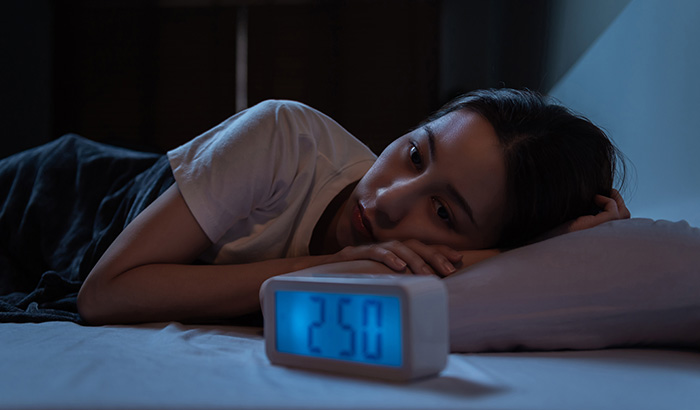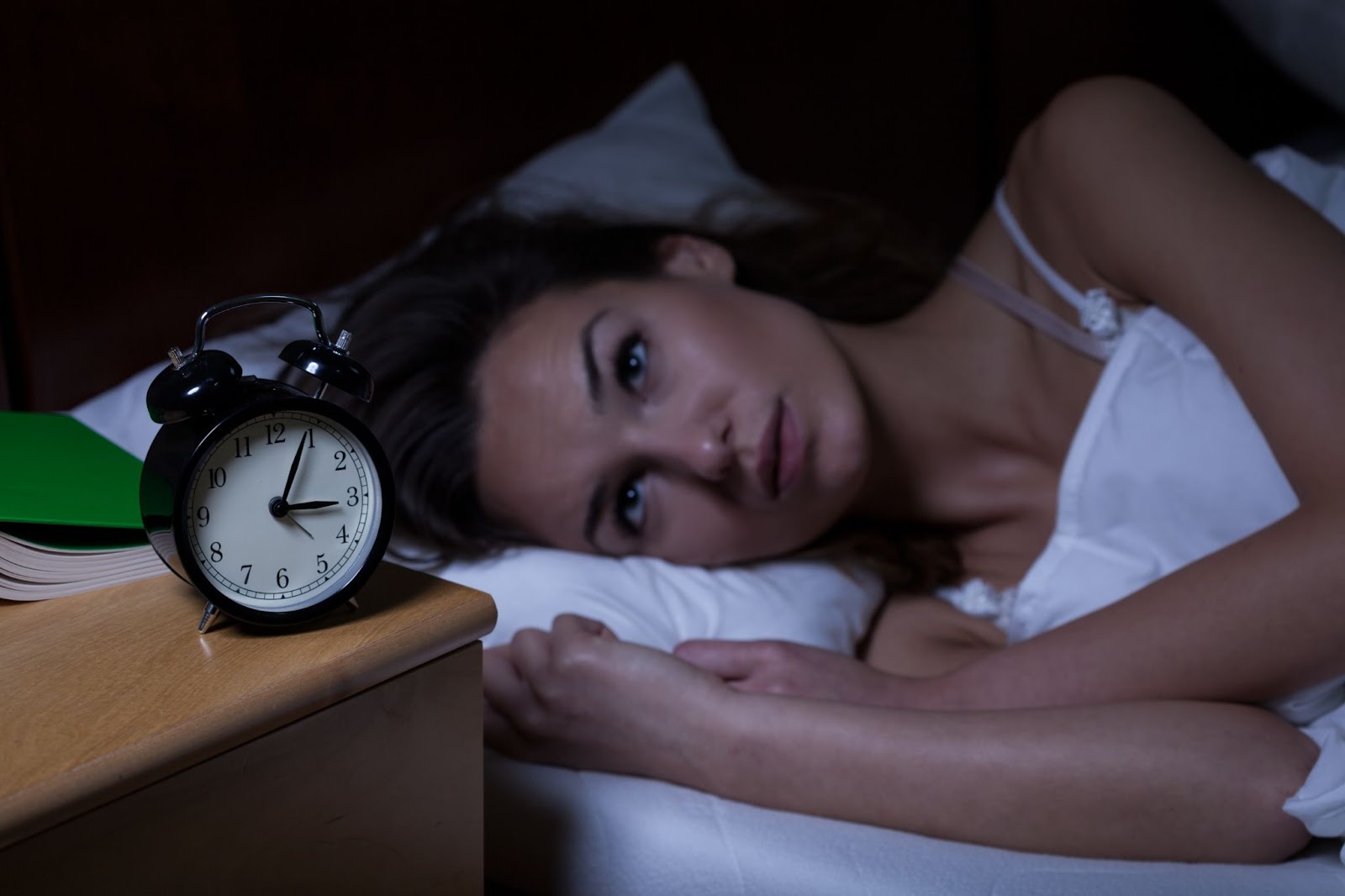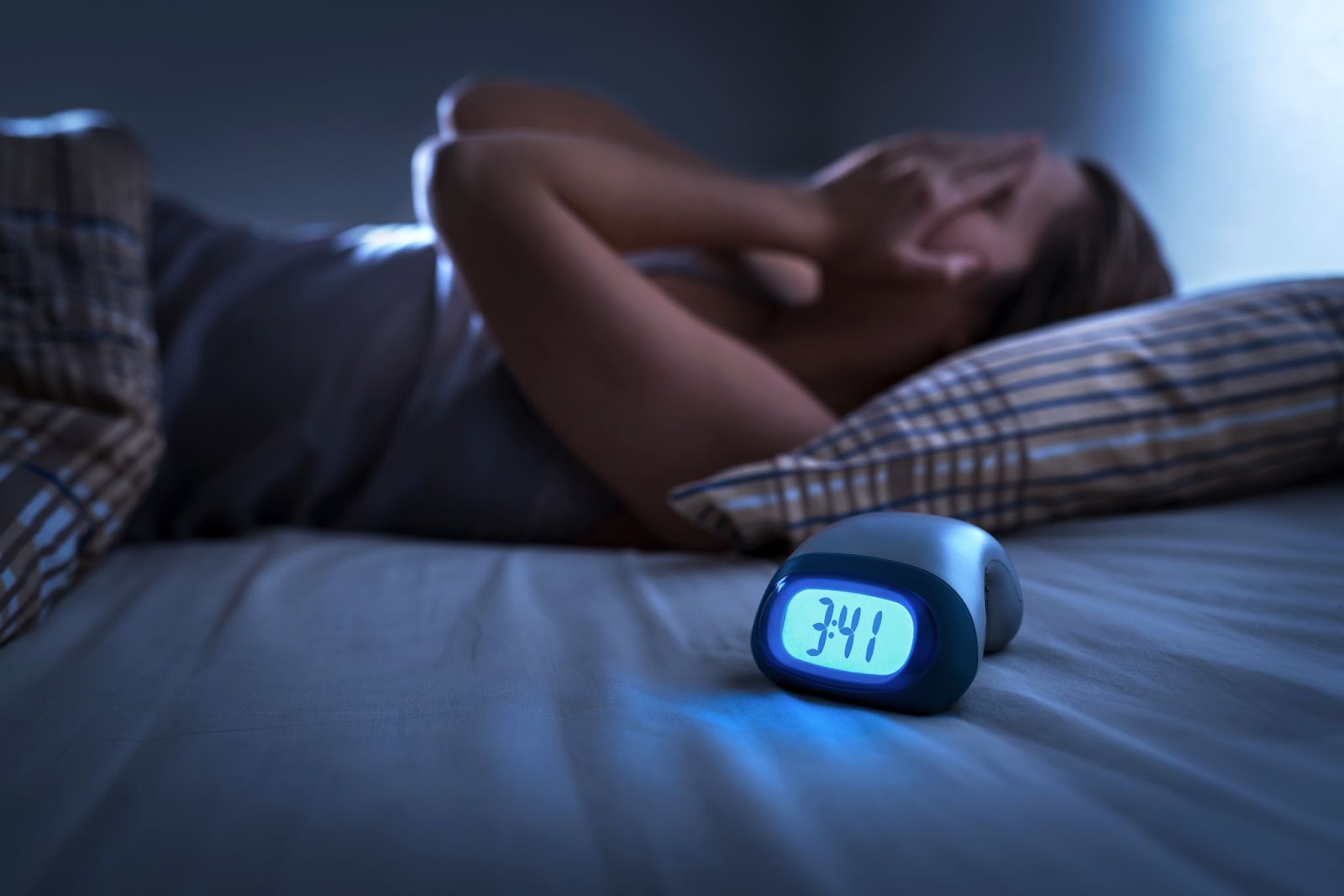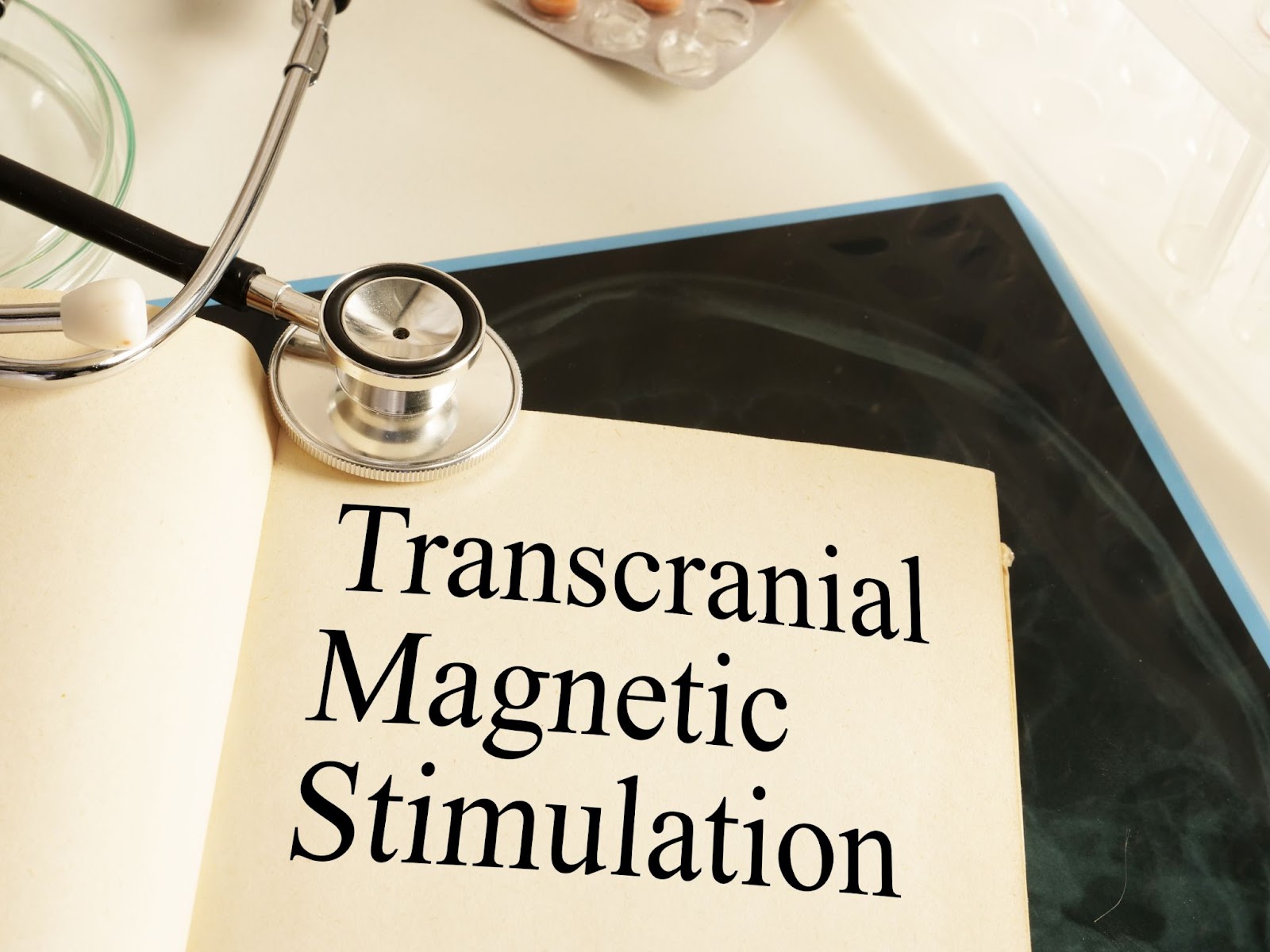Ever wondered about the intriguing link between insomnia and ADHD and what lies at the heart of this connection? You’re not alone. Many folks grappling with ADHD find themselves staring at the ceiling night after night, trying to catch some elusive Z’s. And it’s not merely about being “hyper” or “restless” — there’s a whole lot more going on beneath the surface.
In this deep dive, we’re unraveling the intricate ties between ADHD and insomnia, shedding light on why these two conditions often seem to walk hand in hand and, most importantly, exploring the solutions at our disposal.
From understanding the basics to innovative treatments like TMS therapy, we’re covering all the bases to give you a clearer picture and, hopefully, a better night’s sleep. So, grab your favorite cozy blanket, and let’s get into the nitty-gritty of ADHD, insomnia, and the promising horizon of treatments that could make a difference.
Understanding ADHD
ADHD stands for Attention-Deficit/Hyperactivity Disorder. It’s a condition that affects the brain, making it hard for people to pay attention and control their impulses. This often makes it tough for them to focus in school, stay organized, or even sit still for a long time.
There are three main types of ADHD: inattentive, hyperactive-impulsive, and combined. In the inattentive type, people have trouble focusing and are easily distracted. In the hyperactive-impulsive type, they have a lot of energy and trouble sitting still or waiting their turn. The combined type is a mix of both.
So, how do you know if someone has ADHD? Well, they might have trouble following instructions, forget things a lot, fidget or squirm in their seat, talk too much, have difficulty waiting their turn, and interrupt others. Additionally, there’s a link between ADHD and insomnia, as people with ADHD often struggle with sleep. But can ADHD cause insomnia directly? For many, the symptoms of ADHD, like racing thoughts and hyperactivity, can make it difficult to fall or stay asleep.
It’s important to remember that ADHD isn’t merely a kid thing. Adults can have it too. And, even though it can make life harder, there are ways to manage it.
Understanding ADHD is the first step in helping those who have it. It’s not simply about being hyper or easily distracted. It’s a real condition that affects how the brain works. And with the right support and tools, people with ADHD are still capable of doing amazing things.
Understanding insomnia
Insomnia is a very common problem that many people face. Have you ever found yourself lying in bed, tossing and turning, unable to fall asleep no matter how hard you try? That’s what insomnia feels like.
Insomnia is when you have trouble falling asleep or staying asleep or wake up too early and can’t get back to sleep. It makes you feel tired and irritable and have difficulty concentrating during the day. It’s like your brain won’t shut off, no matter how tired you are.
There are different reasons why someone might have insomnia. It could be because of stress, worry, or even drinking too much caffeine. Sometimes, it can be a symptom of a bigger problem, like anxiety or depression. But no matter the cause, it’s important to understand that insomnia is a real medical issue that affects your health and well-being.
The connection between ADHD and insomnia
Now, insomnia and ADHD might seem unrelated at first, but did you know that they can actually be connected? Let’s dive in and explore the link between these two conditions and how to find a solution.
So, it turns out that many people with ADHD also have trouble sleeping.
This is a big deal because not getting enough sleep can make the symptoms of ADHD even worse. It’s like a never-ending cycle – ADHD often makes it hard to sleep, and not getting enough sleep often makes ADHD symptoms worse. Yikes!
But why does this happen? Well, the reasons are still being studied, but it’s thought that the same parts of the brain that control attention and impulse control in ADHD are also involved in regulating sleep. So, if those parts of the brain aren’t working quite right, it can affect both ADHD symptoms and sleep.
Now, I know this might sound like a big problem with no solution, but there’s good news – there are things we can do to help! The key is to find ways to improve both sleep and ADHD symptoms at the same time. This might include things like creating a relaxing bedtime routine, making sure to get plenty of physical activity during the day, and talking to a doctor about possible treatments for ADHD.
One important thing to note is that some treatments for ADHD, like certain medications, actually make it harder to sleep. So, it’s really important to work with a doctor to find the right balance of treatments that help with both ADHD and sleep. There are also behavioral therapies and lifestyle changes that make a big difference in both areas.
Addressing insomnia in individuals with ADHD
There are a few reasons why people with ADHD might struggle with insomnia. Some experts believe that the same brain chemicals that are involved in ADHD may also play a role in regulating sleep. Others think that the restlessness and racing thoughts that often come with ADHD make it hard to relax and fall asleep.
Now, let’s talk about some solutions. If you’re struggling with insomnia and have ADHD, there are some things to try to help improve your sleep. One approach is to create a relaxing bedtime routine. This could include taking a warm bath, reading a book, or doing deep breathing exercises to help your body and mind wind down.
Another helpful tip is to make sure your bedroom is a comfortable and calming environment. This means keeping it cool, dark, and quiet, and using your bed only for sleep (and maybe a little reading) so that your brain starts associating your bed with sleep and relaxation.
Of course, it’s also important to talk to your doctor if you’re having trouble with insomnia. They might be able to offer some strategies or medication to help you get the sleep you need. And if you’re taking medication for your ADHD, it’s worth having a conversation with your doctor to make sure it’s not interfering with your ability to sleep.
In addition to these tips, there are treatments specifically designed for individuals with ADHD and insomnia. Your doctor might recommend cognitive behavioral therapy for insomnia, which can help you address the thoughts and behaviors that keep you awake. They might also suggest trying a medication that’s been shown to help with both ADHD and sleep issues.
Ultimately, it’s important to remember that you’re not alone in dealing with both ADHD and insomnia. There are plenty of people, including doctors and therapists, who are ready to help you find a solution that works for you. With some patience and persistence, you can start getting the restful sleep you deserve.
Lifestyle modifications and mindfulness techniques
Adopting certain lifestyle changes and incorporating mindfulness techniques can significantly augment the benefits of TMS therapy for those battling ADHD and insomnia.
Simple adjustments like establishing a consistent sleep routine, creating a restful sleeping environment, and engaging in regular physical activity can lay the groundwork for better sleep hygiene and improved focus.
Furthermore, mindfulness practices such as meditation, deep breathing exercises, and yoga often help calm an overactive mind, enhancing the ability to relax and drift off to sleep. These techniques also foster greater concentration and presence, which is particularly beneficial for individuals with ADHD.
Integrating these lifestyle modifications and mindfulness practices into your daily routine creates a supportive foundation that maximizes the effectiveness of other therapies, leading to a more balanced and harmonious life.
Innovation solutions and therapies
Now, onto the good stuff — the solutions and therapies that can help. Many innovative approaches to treating insomnia and ADHD make a real difference in managing these conditions.
For insomnia, one innovative solution is Cognitive Behavioral Therapy for Insomnia (CBT-I). This therapy helps people change their thoughts and behaviors around sleep, which leads to better sleep patterns. It’s been shown to be very effective in treating insomnia and is an excellent alternative to sleeping pills.
Another innovative approach for treating insomnia is light therapy. This involves using a special light box to mimic natural sunlight, which helps regulate your sleep-wake cycle. It’s a natural way to improve your sleep quality and is particularly helpful for people who experience seasonal affective disorder.
When it comes to ADHD, there are also plenty of innovative therapies and solutions to consider. One popular approach is mindfulness meditation. This can help people with ADHD learn to focus their attention and reduce impulsivity. It’s a non-invasive, empowering way to manage ADHD symptoms.
So, there you have it — some innovative solutions and therapies for insomnia and ADHD. If you or someone you know is struggling with these conditions, don’t be afraid to explore these options and find what works best for you.
TMS therapy for ADHD and insomnia
One potential option gaining attention is Transcranial Magnetic Stimulation (TMS) therapy. TMS therapy is a non-invasive procedure that uses magnetic fields to stimulate nerve cells in the brain to improve symptoms of ADHD and insomnia.
During TMS therapy, a device is placed on the scalp to deliver focused magnetic pulses to the brain. These pulses help regulate brain activity and improve communication between different regions of the brain that are responsible for attention and sleep. This helps alleviate symptoms of ADHD and insomnia by promoting better sleep patterns and reducing hyperactivity and impulsivity.
The great thing about TMS therapy is that it’s a safe and effective option for those who may not have had success with other treatments, such as medication or therapy. It’s also non-invasive, meaning there’s no need for surgery or anesthesia.
Plus, you can personalize TMS therapy to target specific areas of the brain that are related to ADHD and insomnia, providing a tailored approach to treatment.
If you’re considering TMS therapy for ADHD and insomnia, it’s important to speak with a healthcare professional who can help determine if it’s the right option for you. They can assess your symptoms, medical history, and overall health to create a personalized treatment plan that addresses your specific needs.
Try TMS therapy at Brain Health Center
As we’ve journeyed through the complex landscape of ADHD and insomnia, it’s clear that these intertwined conditions demand nuanced and innovative approaches to treatment. TMS therapy, with its targeted and non-invasive approach, stands out as a beacon of hope for those navigating the turbulent waters of sleepless nights and restless days.
At Brain Health Center, we’re at the forefront of harnessing the potential of TMS therapy to address ADHD and insomnia, offering a path to improved focus, better sleep, and overall enhanced well-being.
If you’re ready to explore how TMS can make a difference in your life or the life of a loved one, we invite you to reach out. Together, we’ll chart a course toward a more balanced and fulfilling life, free from the chains of sleepless nights and unfocused days.
Your journey to wellness begins with a single step, and at Brain Health Center, we’re here to walk alongside you every step of the way, so you don’t have to go through it alone.
Call us at 435.900.0123, or fill out the form on our website to get in touch with us. We look forward to hearing from you!





